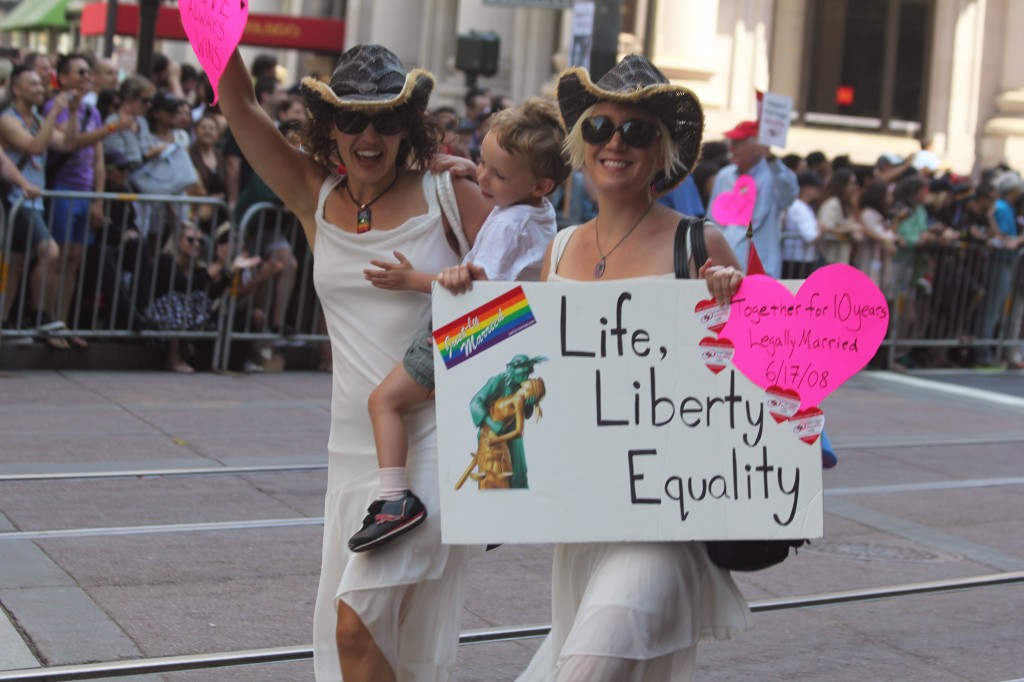
Adoption agency protection bill introduced
On July 30, 2014, Senator Mike Enzi (R-WY) and Rep. Mike Kelly (R-PA) introduced the Child Welfare Provider Inclusion Act of 2014. The bill would prohibit the federal government, and any state government that receives federal child-welfare funding, from refusing or taking away a license or contract from a faith-based adoption or foster-care agency (or faith-based professional) because the agency has or will decline to provide some service that conflicts with the agency’s “sincerely held religious beliefs or moral convictions.”
The purpose of the bill is to forbid state governments from driving religious adoption and foster-care agencies out of business if those agencies stick to their religious principles and do not provide services to same-sex couples, gay persons, or unmarried heterosexuals. The Commonwealth of Virginia adopted a law with a similar protective effect in 2012.
The Enzi/Kelly federal bill might be seen as the “anti-Stark” bill. Several times in previous Congresses, then Rep. Pete Stark (D-CA) introduced the “Every Child Deserves a Family Act,” which would have stripped federal funding from states that do not require every private adoption and foster-care agency to recruit families and place children without regard to sexual orientation, marital status, or gender identity. Stark’s bill would have used federal funding to exclude many faith-based providers from providing these child-welfare services; the Enzi/Kelly bill seeks to use federal funding to ensure that states do not exclude those providers from serving children and families.
In that way, the Enzi/Stark bill is like the Church Amendment successfully promoted by Sen. Frank Church (D-ID) which, right after the US Supreme Court’s Roe v. Wade decision in 1973, added this “string” to federal funding: any hospital or other federally funded program is prohibited from denying employment to a doctor or nurse because of the health professional’s objection to participating in abortion or sterilization.
The new child-welfare bill attempts to protect the federal religious rights of organizations and professionals when the federal government or states use federal funds to support child-welfare services. A number of states have ignored the religious freedom rights of faith-based adoption and foster-care agencies, causing Catholic and evangelical agencies to stop those services in Illinois, Massachusetts, Washington DC, and California. Sometimes government funds have been involved; but the requirement to provide services that violate religious convictions has more commonly been applied as a condition for receiving a required license.
Predictably, the new Enzi/Kelly bill was promptly termed a “license to discriminate.” The bill itself takes note of the fact that states license and contract with a wide variety of providers that have varied philosophies of service and that specialize in serving different segments of the community:
“Because governmental entities provide child welfare services through many charitable, religious, and private organizations, each with varying religious beliefs or moral convictions, and through diverse individuals with varying religious beliefs or moral convictions, the religiously impelled inability of some religious organizations or individuals to provide certain services will not have a material effect on a person’s ability to access federally funded child welfare services.”
In short, the public, including families willing to adopt or foster children, and the children themselves, hold a variety of beliefs about religion, sexual relationships, marriage, and family, so the government can best promote the common good by allowing the range of providers to offer their services. This, in fact, is what the Obama administration has acknowledged: witness the White House’s National Adoption Day celebration in 2011, which featured a range of providers, both those that do place children with gay families and those that do not.
